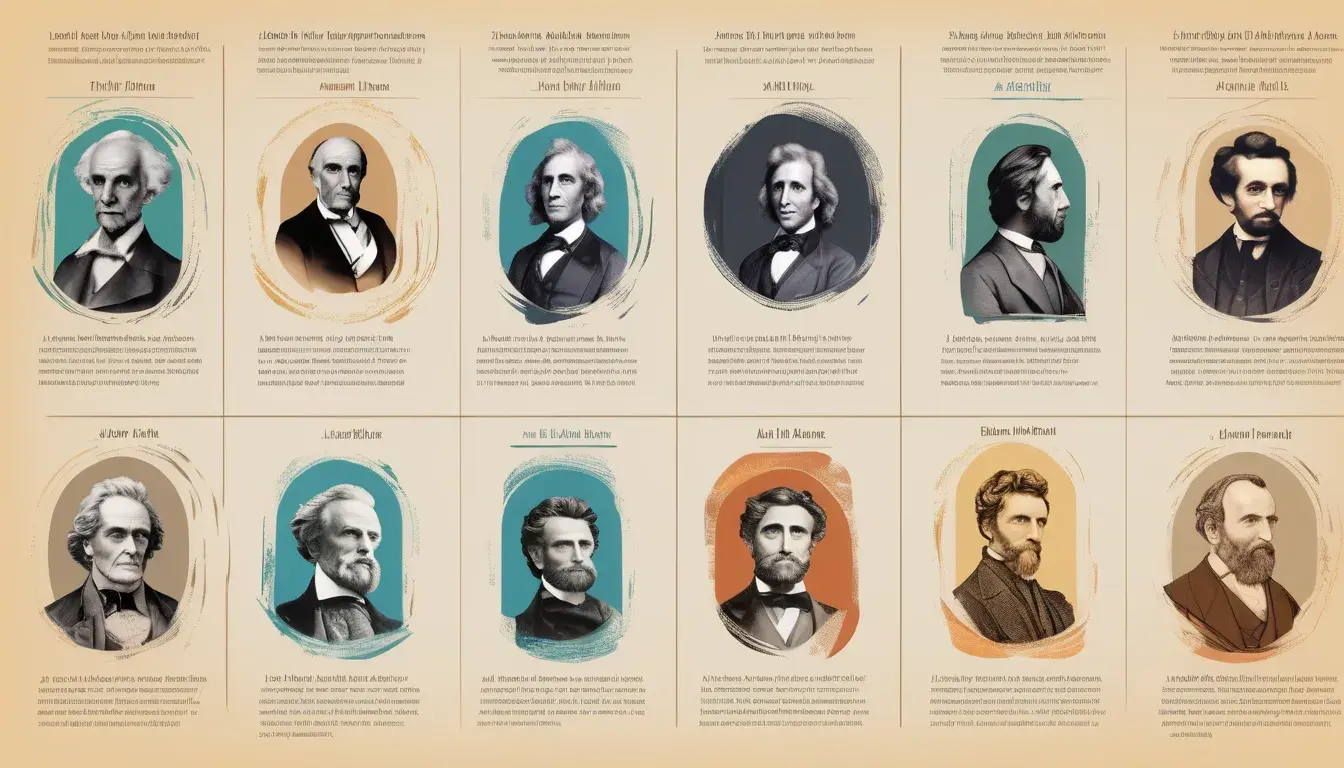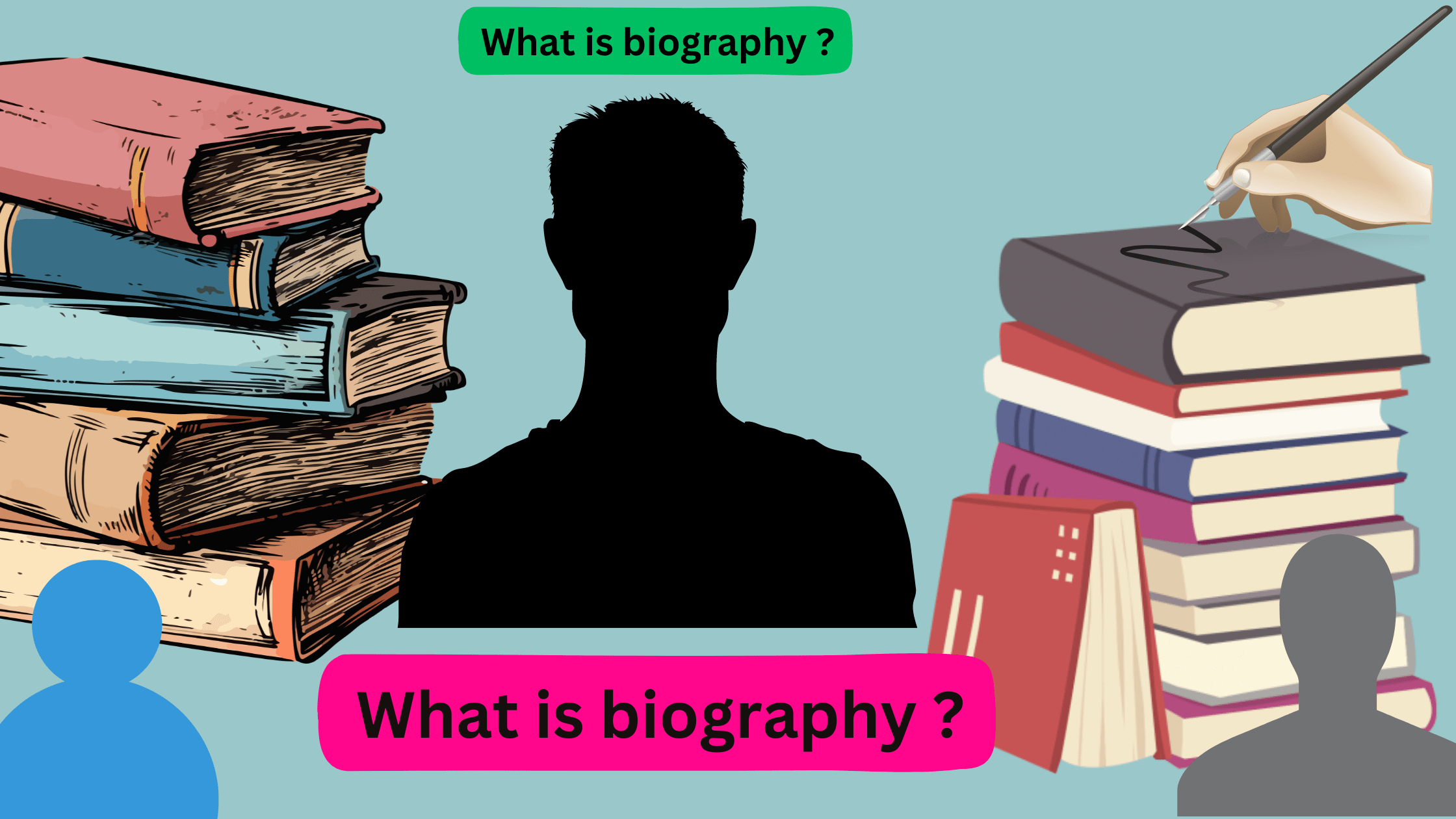The Evolution of Modern Biographies
In the digital age, where storytelling takes on new dimensions, biographies have also evolved to embrace the changing times. With the proliferation of online platforms and the demand for authentic and relatable content, modern biographies have transitioned from traditional textual narratives to multimedia experiences that captivate audiences.
Gone are the days when biographies were solely confined to ink and paper. Today, they come alive through compelling video interviews, interactive websites, and engaging podcasts. This evolution has made biographies more accessible and engaging, reaching a wider audience who craves personal connections and immersive experiences.
By incorporating multimedia elements such as photographs, videos, and audio recordings, modern biographies paint a richer and more nuanced portrait of the subject. Readers can now see and hear the stories unfold, adding a depth of understanding and emotional resonance that was once unimaginable.
The evolution of modern biographies has also transformed the way we consume and engage with these narratives. Digital platforms and social media have made it easier to discover, share, and discuss biographical content, fostering a sense of community and connecting individuals who are passionate about the same stories.
As technology continues to advance, it’s exciting to imagine how biographies will continue to adapt and innovate, bringing us even closer to the lives and experiences of remarkable individuals.
Traditional biographies vs. modern biographies
Traditionally, biographies were written as meticulously researched accounts of an individual’s life, often focusing on their achievements, milestones, and public persona. These biographies were typically presented in a linear, chronological format, with a heavy emphasis on factual information and historical context. The writing style was often formal and academic, catering to a scholarly audience seeking an authoritative and comprehensive understanding of the subject’s life.
However, the modern era has ushered in a significant shift in the way biographies are conceived and presented. Contemporary biographers have embraced a more personal and intimate approach, delving deeper into the subject’s inner world, emotions, and lived experiences. Instead of a dry recitation of facts, modern biographies strive to create an immersive and engaging narrative that allows readers to connect with the subject on a deeper level.
This evolution has been driven by a growing demand for relatable and authentic storytelling. Readers today crave a more nuanced and multidimensional portrayal of individuals, one that goes beyond the public facade and reveals the complexities and vulnerabilities that make them human. Modern biographers recognize the power of personal narratives in captivating audiences and fostering a sense of emotional resonance.
The rise of personal narratives in biographies
The shift towards more personal narratives in biographies has been a deliberate and intentional choice by contemporary writers. By incorporating intimate details, emotional experiences, and introspective reflections, they aim to create a deeper connection between the subject and the reader. This approach allows for a more holistic and humanizing portrayal of the individual, moving away from the traditional emphasis on facts and achievements.
One of the key features of modern biographies is the inclusion of first-person accounts and direct quotes from the subject. This technique gives the reader a sense of immediacy and authenticity, as if they are hearing the subject’s voice directly. Biographers may also incorporate interviews with family members, friends, and colleagues to provide a multifaceted perspective on the subject’s life and relationships.
Moreover, modern biographies often delve into the subject’s inner struggles, personal challenges, and moments of vulnerability. This level of emotional depth and transparency helps to humanize the individual, breaking down the perceived barriers between the reader and the subject. By sharing the subject’s doubts, fears, and personal growth, biographers create a more relatable and empathetic portrait that resonates with the audience.
The impact of technology on modern biographies
The digital age has had a profound impact on the evolution of modern biographies, transforming the way these narratives are created, consumed, and shared. The advent of digital platforms and multimedia technologies has opened up new avenues for biographers to capture and present their subjects’ stories in innovative and engaging ways.
One of the most significant changes has been the incorporation of multimedia elements into biographies. Contemporary biographers are increasingly leveraging video, audio recordings, and interactive digital experiences to bring their subjects to life. Readers can now watch interviews with the subject, listen to their voice, and immerse themselves in a more dynamic and multisensory portrayal of their life.
The use of digital archives and online resources has also transformed the research and writing process for modern biographers. They can now access a wealth of historical documents, personal correspondence, and archival materials with greater ease, allowing them to craft more comprehensive and well-researched narratives. This digital accessibility has also enabled biographers to incorporate a wider range of perspectives and voices into their work, enriching the overall storytelling experience.
The role of social media in shaping modern biographies
The rise of social media has been a pivotal factor in the evolution of modern biographies. These digital platforms have not only influenced the way biographies are consumed but have also shaped the way they are crafted and disseminated.
Social media has provided biographers with a powerful tool for engaging with their audience and building a community around their subject’s story. Through platforms like Twitter, Instagram, and YouTube, biographers can share snippets of their research, teasers of upcoming projects, and behind-the-scenes glimpses into the creative process. This level of interactivity and transparency has fostered a deeper connection between the biographer, the subject, and the readers.
Moreover, social media has enabled the discovery and sharing of modern biographies on a global scale. Readers can now discover and discuss these narratives across borders, fostering a sense of community and collective appreciation for the lives and experiences of remarkable individuals. This digital interconnectedness has also allowed for the cross-pollination of ideas and the emergence of diverse perspectives in the biographic genre.
The influence of cultural shifts on modern biographies
The evolution of modern biographies has been heavily influenced by the broader cultural shifts and societal transformations of our time. As our understanding of identity, representation, and social justice has evolved, so too has the way biographers approach their subjects and the stories they choose to tell.
One notable shift has been the increased emphasis on diverse and underrepresented voices in modern biographies. Biographers are now actively seeking to amplify the stories of individuals from marginalized communities, shedding light on the experiences and contributions of those who have been historically overlooked or marginalized. This has led to a more inclusive and representative portrayal of the human experience, challenging the traditional narratives that have long dominated the biographic genre.
Furthermore, the cultural emphasis on authenticity and personal expression has also shaped the way modern biographies are crafted. Biographers are now more attuned to the importance of capturing the subject’s unique voice, perspective, and lived experiences, rather than imposing a predetermined narrative or agenda. This commitment to authenticity has resulted in biographies that feel more genuine, relatable, and emotionally resonant with readers.
The portrayal of diverse voices in modern biographies
One of the most significant developments in the evolution of modern biographies has been the increased representation of diverse voices and perspectives. Biographers are now actively seeking to amplify the stories of individuals from marginalized communities, recognizing the importance of shedding light on the experiences and contributions of those who have been historically overlooked or underrepresented.
This shift has been driven by a growing awareness of the need for inclusivity and representation in all forms of storytelling. Readers today demand narratives that reflect the full spectrum of human experiences, challenging the traditional dominance of privileged or dominant perspectives. Modern biographers have responded to this call by actively seeking out and highlighting the stories of individuals from diverse backgrounds, including race, gender, sexuality, socioeconomic status, and disability.
The portrayal of diverse voices in modern biographies has not only enriched the genre but has also played a crucial role in challenging societal biases and promoting greater understanding and empathy. By sharing the personal narratives of marginalized individuals, biographers have the power to challenge stereotypes, amplify underrepresented stories, and inspire readers to expand their perspectives. This shift towards inclusivity and representation has been a transformative force in the evolution of modern biographies, ensuring that these narratives reflect the true diversity of the human experience.
The future of modern biographies
As technology continues to advance and cultural landscapes continue to evolve, it is exciting to imagine the future trajectory of modern biographies. The genre has already undergone a remarkable transformation, and the possibilities for its continued evolution are vast and intriguing.
One area of exploration is the integration of emerging technologies, such as virtual reality and augmented reality, into the biographic experience. Imagine being able to step into the subject’s world, to virtually walk through the spaces they inhabited, and to witness their stories unfold in an immersive, multisensory environment. This level of immersion could profoundly deepen the reader’s connection to the subject and their lived experiences, creating a truly transformative and unforgettable encounter.
Additionally, the continued advancement of artificial intelligence and machine learning could revolutionize the research and storytelling process for modern biographers. These tools could assist in the analysis of vast troves of data, uncovering patterns and insights that might have previously eluded human researchers. This could lead to the emergence of more comprehensive, nuanced, and personalized biographies that offer readers a deeper understanding of their subjects.
As the world becomes increasingly interconnected, the future of modern biographies may also involve greater collaboration and cross-cultural exchange. Biographers from diverse backgrounds could come together to share their unique perspectives and create multifaceted narratives that transcend geographical and cultural boundaries. This could foster a greater appreciation for the universality of the human experience and the richness of our global diversity.
Examples of popular modern biographies
The evolution of modern biographies can be seen in the success and critical acclaim of several recent works that have captivated readers worldwide. These examples showcase the diverse approaches and innovative techniques that have come to define the genre in the digital age.
One such example is “Educated” by Tara Westover, a powerful memoir that delves into the author’s unconventional upbringing and her journey towards self-discovery and higher education. Westover’s personal narrative is both intimate and thought-provoking, blending elements of family drama, personal growth, and societal critique. The book’s success has been attributed to its ability to connect with readers on an emotional level, transcending the traditional boundaries of the biographic genre.
Another notable example is “Born a Crime” by Trevor Noah, the host of “The Daily Show.” This autobiographical work chronicles Noah’s childhood in apartheid-era South Africa, offering a unique and deeply personal perspective on the country’s tumultuous history. By interweaving humor, cultural insights, and heartfelt reflections, Noah has created a captivating and accessible narrative that has resonated with a global audience.
The recent biography of Supreme Court Justice Ruth Bader Ginsburg, “My Own Words” by Mary Hartnett and Wendy W. Williams, also exemplifies the evolution of modern biographies. The book features a rich tapestry of Ginsburg’s own writings, speeches, and personal reflections, allowing readers to engage with the subject’s voice and perspectives directly. This approach provides a more intimate and multidimensional portrayal of the iconic jurist’s life and legacy.
The evolution of modern biographies has transformed the way we engage with and appreciate the stories of remarkable individuals. By embracing the power of personal narratives, multimedia elements, and diverse perspectives, contemporary biographers have created a genre that is more accessible, relatable, and emotionally resonant than ever before.
As technology continues to advance and cultural landscapes continue to shift, it is exciting to imagine the future of modern biographies. The integration of emerging technologies, the collaboration of cross-cultural storytellers, and the amplification of underrepresented voices will undoubtedly shape the genre in new and innovative ways, expanding our understanding of the human experience and the remarkable lives that have shaped our world.
In the digital age, biographies have become more than just factual accounts; they are immersive, multidimensional experiences that captivate and inspire us. By embracing this evolution, biographers have the power to connect us to the lives of others, fostering empathy, understanding, and a deeper appreciation for the complexity and diversity of the human story.


